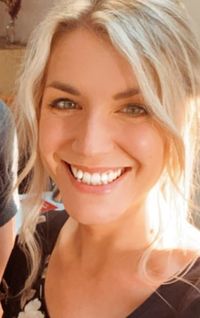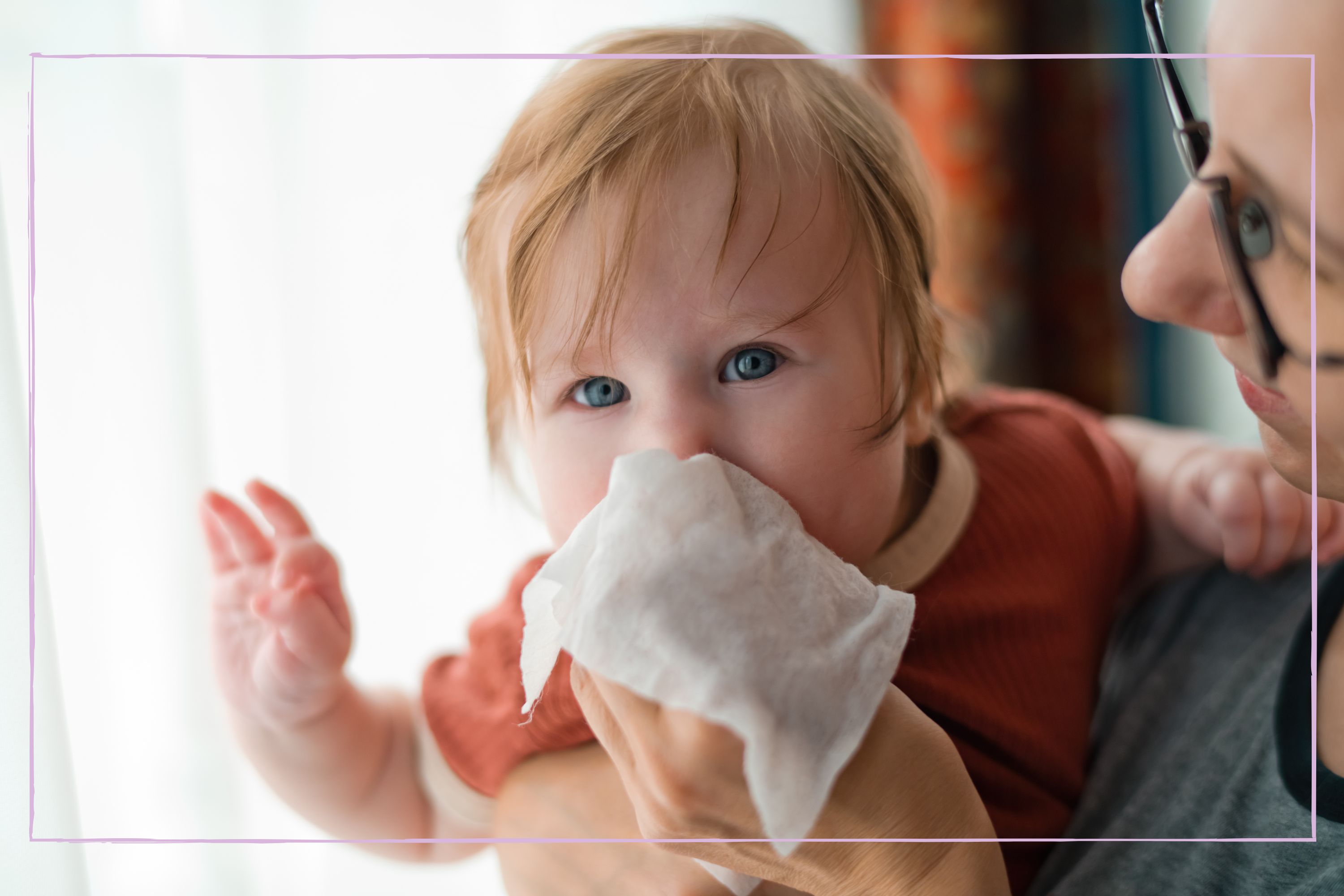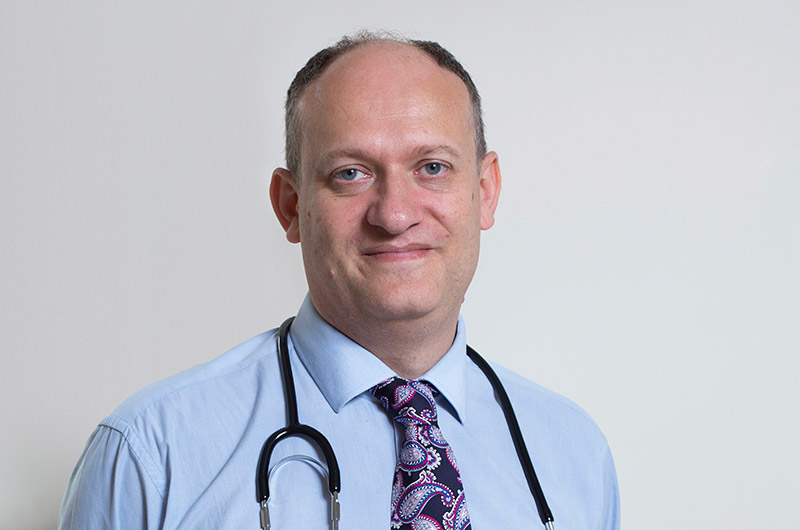Can babies get hay fever? Symptoms to look out for and how to treat them
A paediatric allergy consultant and child allergy specialist answers the question ‘Can babies get hay fever?’ and shares important advice and guidance for parents


Parenting advice, hot topics, best buys and family finance tips delivered straight to your inbox.
You are now subscribed
Your newsletter sign-up was successful
Can babies get hay fever? We asked the experts and got answers from an award-winning Paediatric Allergist and the Acting Head of Clinical Services at the leading national patient charity for people living with all types of allergy.
According to charity Allergy UK, 40% of children in the UK have been diagnosed with an allergy and the four most common allergies in children are food allergy, eczema, asthma, and hay fever. We know that children can suffer with hay fever, which is also known as seasonal rhinitis, but can babies get hay fever too?
To answer this question, we spoke to paediatric allergy consultant and child allergy specialist Professor Adam Fox and Margaret Kelman, a Research Nurse and Acting Head of Clinical Services for Allergy UK. They share their insights and expert advice on the topic of hay fever in babies and young children below.
The information in this article is for general purposes only and does not take the place of medical advice. It is essential to be guided by your GP and take note of official NHS advice. As a parent, you know your child better than anyone and you should always trust your own judgement. If you are at all in doubt or you're worried about your child's symptoms, you should contact your GP. If your child has a temperature, their symptoms worsen or a rash appears, then it is crucial to seek personalised advice from a doctor as soon as possible.
Can babies get hay fever?
"Yes, babies and young children can be affected by hay fever," Margaret tells us, although Professor Fox explains why it isn’t common, "It’s relatively rare for babies under the age of 2 to experience hay fever symptoms, as typically children require at least two seasons of exposure to pollen before an allergic reaction takes place.
"It is still possible to see symptoms in babies before 2 years of age," Professor Fox adds, "However, it’s important to consider other possible causes of a baby’s symptoms such as infection before assuming it is hay fever related."
As highlighted by Professor Fox, it's important to seek medical advice to get an accurate diagnosis if your baby or young child develops hay fever symptoms, just in case the symptoms are related to an infection that needs to be treated and in order to rule out asthma or other medical conditions which may require prescription medication.
How do I know if my baby has hay fever? What are the main symptoms to look out for?
"Sore, itchy, watery eyes and a runny, blocked nose are the most common hay fever symptoms that babies can have," Professor Fox says. "Sufferers of all ages can also experience lesser-known symptoms such as swelling of the eye-lids and light sensitivity, and eyelids that feel difficult to open in the morning."
Parenting advice, hot topics, best buys and family finance tips delivered straight to your inbox.
Margaret explains that hay fever symptoms in babies are often missed, as they are, "similar to those of a common cold". The main difference between hay fever and a cold is the season that the symptoms occur and the presence of a fever or temperature. Hay fever never causes a fever, so if a child has a high temperature they likely have a cold or a different illness and need to get seen by a doctor.
The season that the symptoms occur also might indicate if your child has hay fever. It might be a sign that your baby is suffering from hay fever instead of just a common cold if their symptoms get worse in warm, sunny weather - and don’t clear up quickly like a cold.
"Typically babies and young children are likely to experience symptoms of hay fever during the pollen seasons in spring and summer months, depending on the pollen trigger," Margaret explains.
"Your baby might be allergic to only a particular type of pollen and have symptoms in the spring or late summer for example, or they could be allergic to more than one pollen type (such as tree and grass pollen) and have symptoms from spring all the way through to autumn," says Professor Fox.
How severe hay fever symptoms are will depend on the pollen count that day. The weather also plays a part as there's more pollen in the air on a hot, dry day than a wet and cloudy one.
"Hay fever symptoms also vary depending on the time of day and the weather conditions, which affect the amount of pollen in the air (pollen count)," Professor Fox explains. “The count is usually at its highest in the morning and on hot, dry and windy conditions, so this is when symptoms are likely to be at their worst."
"However, in young children, [hay fever] symptoms can be difficult to distinguish from other conditions or illnesses including the common cold or teething," says Margaret. "We always suggest that if there is any doubt, people shouldn’t hesitate to seek medical advice."
If your baby is displaying any of these symptoms, it’s best to make an appointment to see your GP and get a formal diagnosis and personalised medical advice on treatment.
Why does my baby have hay fever?
Hay fever is usually caused by pollen, although it can be induced by other allergens such as dust mites. Hay fever symptoms can occur because the body is mistakenly seeing pollen as a threat, so the immune system is attempting to prevent the perceived 'infection' from spreading.
In the UK, hay fever symptoms are mostly triggered by pollen from trees, grasses and weeds, as well as environmental moulds. Hay fever is at its peak between April and September, but your child may suffer for a shorter period if they are only allergic to a particular type of pollen. The time of year their symptoms flare up can give you an idea of which type of pollen they might be having a reaction to.
- February to June – tree pollen
- May to July – grass pollen (the most common hay fever trigger)
- June to September – weed pollen
Genetics also play a role in why your child might have hay fever. "Your child is more likely to suffer from hay fever if other close family members have allergies," Margaret says, with Professor Fox adding, "If any immediate family member (siblings or parents) have eczema, hay fever or asthma, it makes it more likely that the baby could develop allergies."
Do I need to see a doctor for hay fever in babies?
Yes, you should make an appointment to see a doctor and seek medical advice if you think your child might have hay fever or if they are displaying symptoms that become troublesome or concern you.
If hay fever in babies is left untreated it can lead to the development of wheezy symptoms or you risk missing a more serious underlying issue that needs to be seen and treated by a doctor.
"Allergy symptoms are troublesome for children and parents, and if left untreated, they may increase the likelihood of wheezy symptoms,” says Professor Fox. “Always speak with your GP or pharmacist for advice if you are worried about your baby’s symptoms."
What can parents do at home to help their baby with hay fever?
Some natural remedies for hay fever are suitable for children as well as adults, but the main thing that parents can do at home to help their child manage their hay fever is try and minimise their child’s exposure to pollen. Margaret suggests that parents monitor and be aware of the daily pollen forecast. "It might help if parents can reduce the time your baby spends outside during peak hay fever times."
Professor Fox also suggests that you can help to ease hay fever symptoms in babies and children by:
- Washing their clothes if they've been outside to remove the pollen
- Keeping windows and doors shut to avoid pollen coming in to your home
- Vacuuming regularly and dust with a damp cloth to remove pollen on carpets and surfaces
- Bathing every evening to remove pollen from your baby’s skin, hair and eye lashes
How long does hay fever last in babies?
The good news is that if your baby is diagnosed with hay fever, they might not have it for the rest of their lives and there’s a chance they will find their symptoms improve or even disappear as they get older.
Professor Fox explains: "typically hayfever first appears in teenagers and young adults but can appear in significantly younger children. Hayfever that is more troublesome, in younger people, is more likely to run a protracted course.
"Many find their symptoms improve as they get older with around half of sufferers reporting some improvement in symptoms after several years. What's more, symptoms disappear completely in around 10-20% of people."
The information on GoodTo.com does not constitute medical or other health advice or diagnosis and should not be used as such. Although GoodtoKnow consults a range of medical experts to create and fact-check content, this information is for general purposes only and does not take the place of medical advice. Always seek the guidance of a qualified health professional or seek urgent medical attention if needed.
Our experts

Professor Fox is a London-based Consultant Paediatric Allergist and is widely recognised as a leader in the field of Paediatric Allergy. He is one of few in the UK with higher training in this specialty and his key areas of interest include the management of the food allergy, the treatment of asthma, rhinitis (hay fever), eczema, and conjunctivitis, as well as allergies to drugs and insect stings. Professor Fox obtained a degree in Medicine and Neuroscience at the University of Cambridge and then undertook clinical training in Paediatric Allergy at University College London. Professor Adam Fox is currently working with FUSION™ Allergy Nasal Spray.
Margaret studied Allergy at the University of Southampton and has worked within NHS Scotland as the allergy advisor / programme manager for CYANS (the Children and Young People’s Allergy Network Scotland NMCN). In 2021 she was awarded the Barry Kay award for excellence in allergy care and research in primary care at the BSACI conference. Margaret lives and works in Scotland and took up a post as specialist allergy nurse with Allergy UK in August 2020.
This article was originally published on June 19th 2023 and was updated on May 14th 2024 to add expert advice from Professor Adam Fox and ensure that all the information provided on hay fever is up to date and reflects current expert advice and data on the topic.
Stephanie has been a journalist since 2008, she is a true dynamo in the world of women's lifestyle and family content. From child development and psychology to delicious recipes, interior inspiration, and fun-packed kids' activities, she covers it all with flair. Whether it's the emotional journey of matrescence, the mental juggling act of being the default parent, or breaking the cycle of parenting patterns, Stephanie knows it inside out backed by her studies in child psychology. Stephanie lives in Kent with her husband and son, Ted. Just keeping on top of school emails/fundraisers/non-uniform days/packed lunches is her second full-time job.